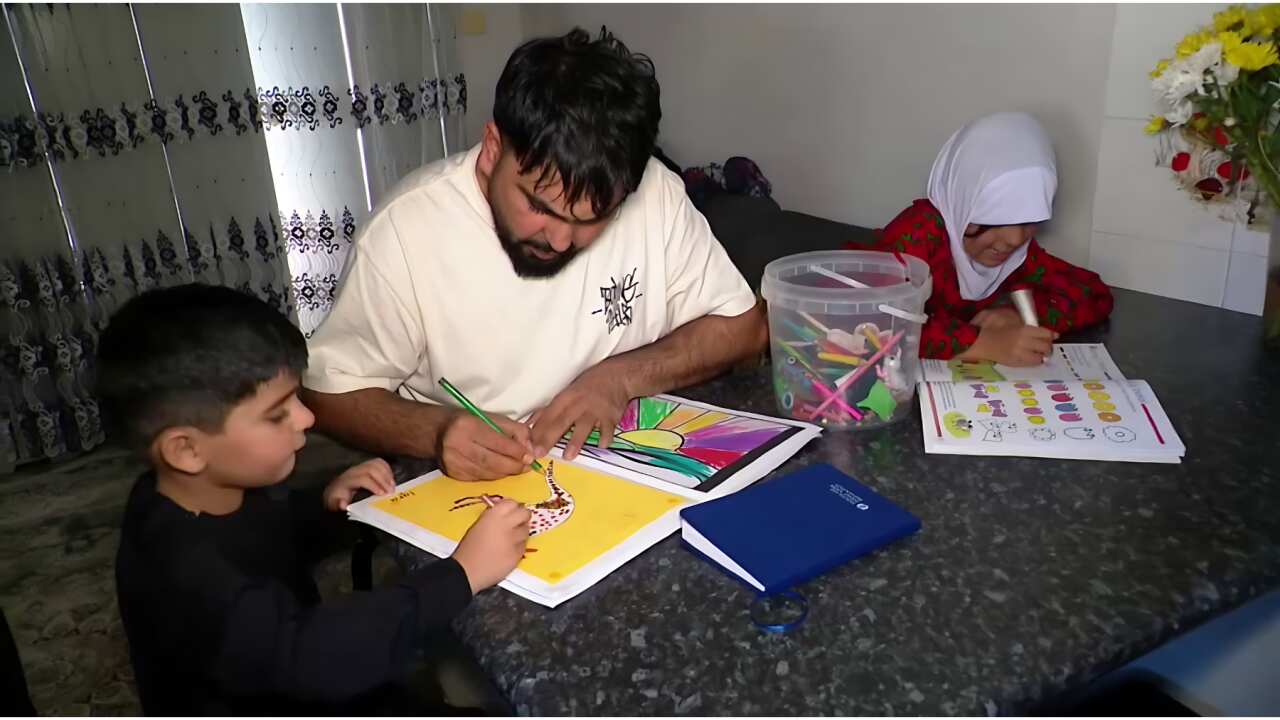Produced in collaboration with SBS Pashto
TRANSCRIPT
Taj Wali Raihan often looks back at what feels like another life. A decade ago, he worked as an interpreter for the Australian Defence Force in Afghanistan. But in 2021, his world was upended.
The Taliban had taken back Afghanistan – and he was among the masses at Kabul Airport.
SBS aired his pleas for help at the time.
“We felt very sad at that time, fearing that if the Australians didn't come, and we stayed, we would be in danger. Because we have worked with Australians and heard the Taliban are killing people.”
He’s now settled in Newcastle, in New South Wales, with his family – having obtained a humanitarian visa, through the Afghan Locally Engaged Employee Program - or LEE.
“Now that we have come to Australia, I see a bright future for my children and we also see a promising future for ourselves. We are happy.”
A LEE falls under the humanitarian visa, allowing successful applicants to be fast-tracked.
Former Afghan employees first need to receive certification from the Department of Defence to prove they worked for the ADF.
Once they receive that, they can apply for a permanent humanitarian visa.
But there are some who still haven't received a certificate outcome.
That means they likely won't be able to apply for a fast-tracked visa - because the program closes next week.
That includes Ali, whose name we've changed to protect his identity.
He's been waiting 7 years for his certification - living in danger under the Taliban rule.
“My family and I are facing serious threats. I am in hiding, away from my family and children. Many times, the Taliban have raided my house because of me.”
The Department of Home Affairs is still processing 189 existing LEE applications, regardless of the program's closure.
Shahri Rafi is a lawyer who's been representing the former interpreters.
“For the ones they haven’t lodged or didn't have the opportunity to lodge or the fact that the Australian government did not expand the contractors in this process and abolished the program - In my view, Australia is turning a blind eye to its moral duty.”
Home Affairs told SBS News that former employees who weren't able to get LEE-certified can still apply for a humanitarian visa.
But it means those in most danger, because they worked for Australia, will be stuck in a queue of around 220,000 applicants.





